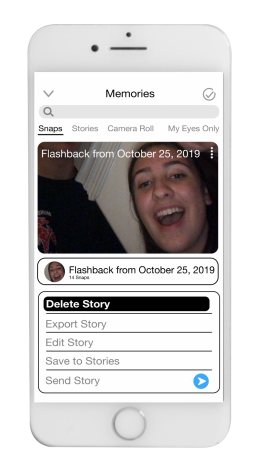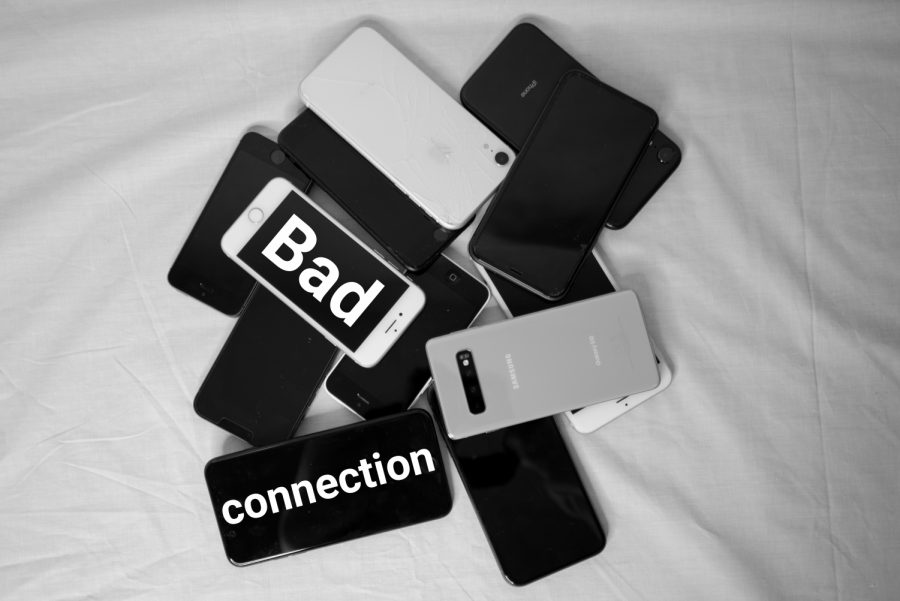Teens’ bad connection to the internet
Students and teachers discuss the effects of the internet
October 26, 2021
Whether it is a long rant about some recent drama on one’s “finsta” or a blurry photo of one’s dog, it is forever living on the internet. In the moment, no one ever thinks of how these actions are reflections of the internet affect on their behavior. The internet has begun to shape ideologies and actions as it reaches younger generations.
“My ideas and my opinions on things are definitely shaped by the internet,” Evvy Kikkert, freshman, said. “That’s where I learned about a lot of new ideas and concepts.”
According to multiple studies detailed in “Excessive Internet Usage Adversely Affects Concentration in Students” from the Daily Collegian, as people use the internet more frequently, they are likely to have a decreased attention span. People usually spend mere minutes on websites, but this can cause lack of focus and a build up of frustration. Distractions on the internet combined with one’s attention span waning often leads to procrastination and further lack of motivation.
“(My) attention span (has been affected). If you’re not giving me this insane amount of content that’s always going, always energetic, it’s hard for me to stay on track,” Annabelle Spicer, sophomore, said. “(It’s) because that’s all I see on YouTube. There’s edits where somebody’s talking, then there’s a noise effect and then there’s a zoom in, or something like that.”
Due to the tedious nature of school work, it requires large amounts of concentration at one time, students find relief in social media apps that are designed for short bursts of concentration like TikTok or Instagram. This makes some wonder—is this purposeful? While baiting teens with short attention spans, these apps simultaneously lower one’s self esteem. This is especially applies to teen girls: another study done by “The Lancet” shows that they are more likely to have depressive symptoms like low self-esteem or less sleep compared to teen boys.
“What’s really unfortunate is (students) base (self-worth) on how many likes they get, how many people follow them,” Ms. Koula Amanatidis Radoicic, computer science teacher, said. “It shouldn’t be an issue of who follows you, you should have the attitude that you’re confident no matter what, and I’m scared and I worry for the young women. (Social media) has given them the wrong idea of who you should be.”
With scandals surfacing, like the Facebook whistleblower exposing the app’s harmful effects, more research has come to the public’s attention. For example, Facebook’s own research shows that use of Instagram has caused worse eating disorders and suicidal thoughts in teen girls. This is forcing students to have to individually monitor their social media intake.

“Sometimes it’s good to just take a day or two off (social media). I know, for me at least, this summer getting off of social media has helped me so much,” Jocelyn Lemus, junior, said. “The biggest part of mental health for me is how you see yourself because you see people and you think ‘oh my god they look perfect,’ but sometimes we compare ourselves to them, when we shouldn’t.”
Students’ need for social validation is being exploited by large corporation’s actions. Students are introduced to the internet at younger ages, and what they post on social media does end up haunting them, whether it is malicious or something small that will follow them.
“I had a Pinterest account that was from fourth and fifth grade and when you search up my name it’s the first thing that comes up,” Evvy said. “Everything that I really liked when I was in fourth and fifth grade is there, so it’s embarrassing stuff.”
Though some things are light hearted, the internet still has damaging aspects to mental health, and that is what younger students tend to focus on. Students don’t always feel comfortable reaching out for help or know their limits online.
“There’s got to be reasons for why we’re seeing this influx in kids that are struggling with health,” Mrs. Katie Harris, math teacher, said. “ We can help; there are professionals that know how to deal with this. I hope that part of the good of the internet is that you get the support that you need.”



